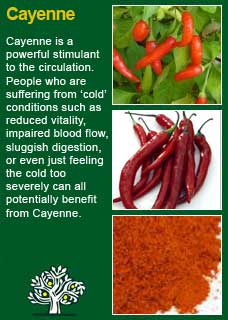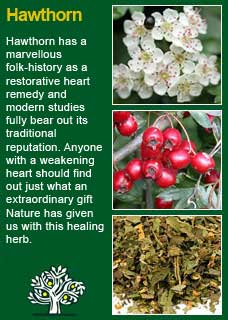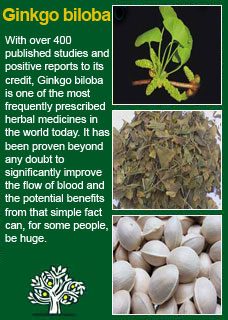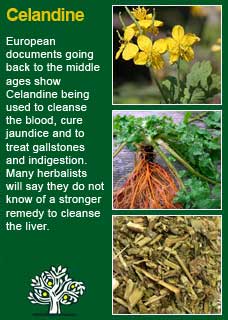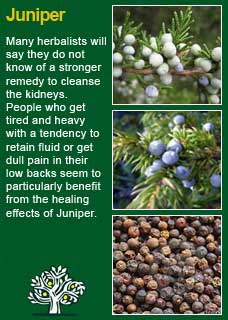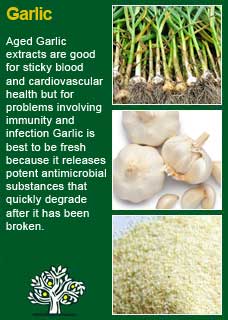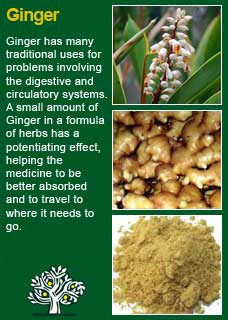|
 Finding a good herbalist Finding a good herbalist
Much of what's written in this article is entirely suitable for a person to work through themselves but, especially if things are quite bad, or you just know that you need further help, then there may be a great deal of benefit to you to go to whatever lengths necessary to find a good herbalist to guide you on to a safe and strong treatment program. There's a short write-up to suggest how you might go about finding such a person here
 Overview Overview
Intermittent claudication is a syndrome where there is a frequent cramping pain in the legs that is usually made worse by standing or walking. Intermittent claudication is caused by a lack of blood flow and/or a problem with oxygenation of that blood.
Conventional medicine offers drugs and surgery but not everyone will want to go down those routes or may even be able to. Herbal medicine seeks to improve circulation and, at the same time, improve the health and fluidity of the blood.
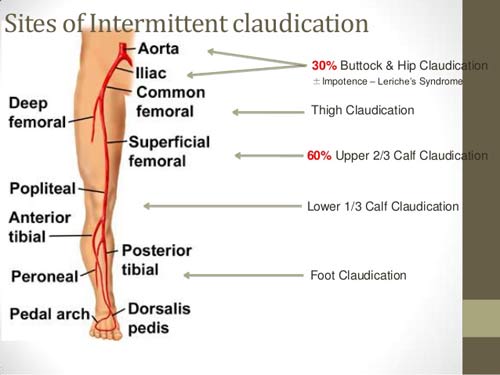
 TOP | CONDITIONS TREATED A-Z or BY GROUP TOP | CONDITIONS TREATED A-Z or BY GROUP
 Improve blood flow Improve blood flow
The first objective is to improve blood flow to the legs and the first question to ask is what is causing it to be impaired. Hardening of the arteries is proposed by conventional medicine as the primary cause of Intermittent claudication however, many people with significant arteriosclerosis get no cramping whatsoever. In many cases, it can be seen that remedying a structural block from a misaligned pelvis and/or strengthening the circulation will bring about a cure.
 Check for Pelvic Misalignment Check for Pelvic Misalignment
The alignment of the pelvis has a major influence over how much blood flows into the lower body. You might already suspect this is a potential problem because of a history of low back pain or pelvic organ issues, e.g. issues with the regular functioning of your bladder or bowel.
The best way to know for sure is to get a professional assessment from a person who has dedicated their lives and practice to this kind of work. Typically, such a person might have a training background in chiropractic or osteopathy but there are other disciplines that may be just as well-equipped to diagnose and treat structural misalignments including Feldenkrais, Alexander technique, Yoga practitioners, Neuromuscular therapists etc.
More important than what someone calls themselves is their experience, their integrity and their depth of approach. Some of the suggestions given above about 'how to find a good herbalist' will be of equal value in finding the right person to assess, and then potentially treat, your spine and pelvis.
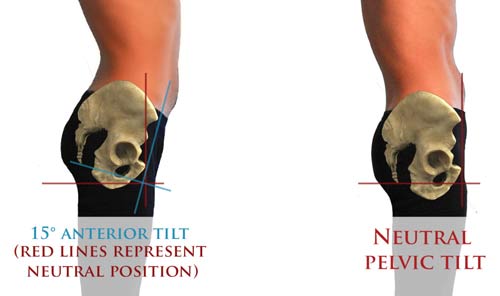
 TOP | CONDITIONS TREATED A-Z or BY GROUP TOP | CONDITIONS TREATED A-Z or BY GROUP
 Strengthen circulation Strengthen circulation
At the bottom of this page is an introduction to the subject of constitutions, which talks about how people, relatively speaking, are naturally hotter or cooler. If you have always been a person who is prone to feeling the cold, and this had increased with age, then the intermittent claudication is probably a sign that your circulatory system is now in need of support. Fortunately, there are several natural allies that may usually be relied on to help.
 Cayenne Cayenne
Cayenne is very potent, but can be entirely safe if used with care, which is largely about getting a good product and then gradually building up the dose. It may be of significant benefit to someone with intermittent claudication. thought to be caused by poor circulation, more here
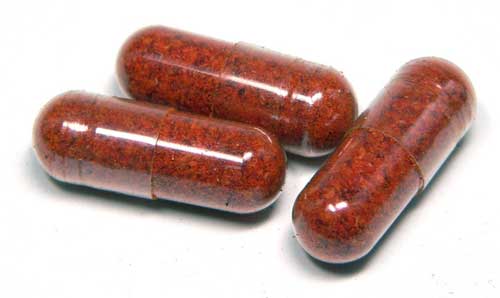
Capsicum annum/minimum (Cayenne)
 TOP | CONDITIONS TREATED A-Z or BY GROUP TOP | CONDITIONS TREATED A-Z or BY GROUP
 Hawthorn Hawthorn
Hawthorn is well proven to improve blood flow through the heart and to increase the strength of the heart-beat. It is likely to help a person with intermittent claudication but must be taken patiently and consistently over time to see it true benefits, more info here
 Gingko Gingko
Ginkgo is not a herb that suits everyone and it comes with a caution but for some sufferers of intermittent claudication it has been a key remedy to shift their condition. The caution is that Ginkgo not only makes the blood runnier but it also increases blood-flow to the head and, what that means, is that some people will initially get a characteristic headache several days into using it!
The reason this can happen is that, as the Ginkgo improves blood flow to the brain, it is like a river that pushes against a dam until it breaks and the water runs more freely but whilst it is still pushing it can create some pressure. If you get a distinctive headache after taking Ginkgo for a few days, take it as a good sign that a better blood flow is happening to some places that needed it. You can decrease the dose of Ginkgo if you get a headache but don't stop using it and, as soon as you are ready, build the dose back up to the recommended amount on the label, more here
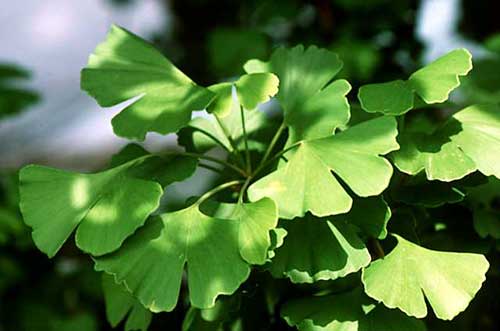
Ginkgo biloba
 TOP | CONDITIONS TREATED A-Z or BY GROUP TOP | CONDITIONS TREATED A-Z or BY GROUP
 Garlic & Ginger Garlic & Ginger
You should certainly use an abundant amount of Ginger and/or Garlic in your diet if you have intermittent claudication, both these herbs/foods have properties that will improve blood quality and circulation.
In the case of Ginger, along with food intake, one way to get a strong therapeutic dose is to prepare a simple and delicious tea using the fresh root as described in the article on Ginger here
Likewise, there are a number of ways to take Garlic as a medicine, some recipes and examples of how it can be used are described here
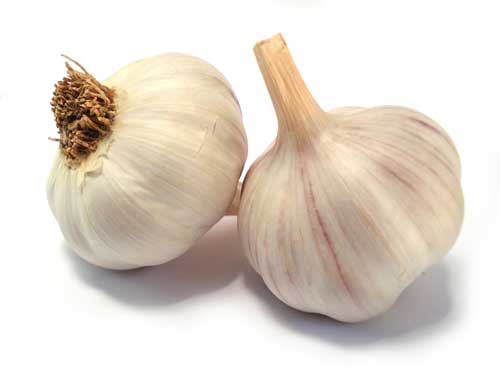
Allium sativum (Garlic)
 TOP | CONDITIONS TREATED A-Z or BY GROUP TOP | CONDITIONS TREATED A-Z or BY GROUP
 Related Conditions Related Conditions
Intermittent claudication rarely occurs in isolation. If you have one of the related conditions then be sure to give these your attention at the same time:
- Problems with high blood pressure, read here
- Problems with arrhythmia or palpitations, read here
- Problems with cholesterol, read here
- Problems with the restless legs syndrome, read here
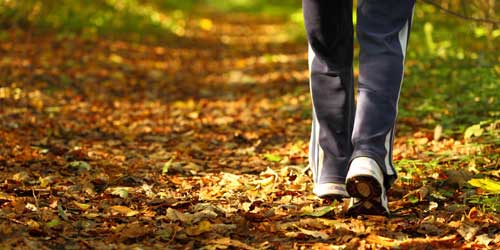
 Constitutional Health Note Constitutional Health Note
Finally, you might benefit from learning about your constitution to know what kind of foods, herbs, exercises etc. will work especially well for your health in general.
Constitutional health is an old and fascinating way of understanding our differences. There's a brief introduction here and a more detailed section on working out which constitution you are here

Please understand that I cannot personally advise you without seeing you in my clinic.
This living 'book' is my labour of love so, wherever you are, I wish you peace & good health!
 TOP | CONDITIONS TREATED A-Z or BY GROUP TOP | CONDITIONS TREATED A-Z or BY GROUP
|








